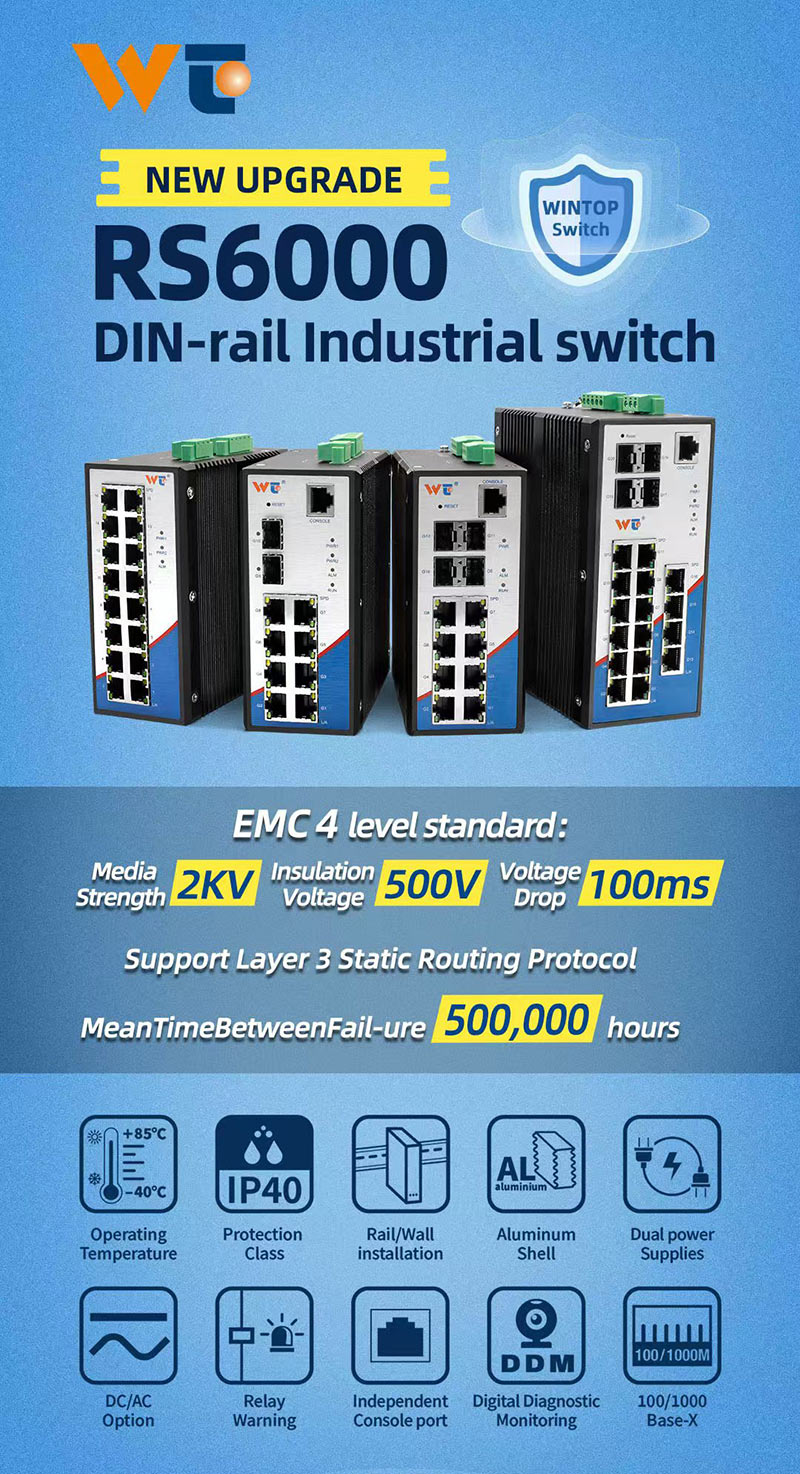Enhancing Industrial Networks with 24-Port Industrial Switches
In the dynamic landscape of industrial operations, reliable network infrastructure forms the backbone of efficient and secure communication. Among the crucial components driving this infrastructure forward are 24-port industrial switches. These robust devices play a pivotal role in facilitating seamless data transmission within industrial environments, ensuring uninterrupted connectivity across numerous endpoints.
Key Features and Benefits
24-port industrial switches are engineered to meet the stringent demands of industrial settings, characterized by harsh conditions and high-performance requirements. These switches typically offer a multitude of features tailored to enhance operational efficiency and reliability:
- High Port Density: With 24 ports available, these switches provide ample connectivity options for numerous devices and endpoints within a network. This high port density is essential for scaling industrial networks without compromising performance.
- Industrial-Grade Durability: Built to withstand extreme temperatures, humidity, vibrations, and electromagnetic interference (EMI), industrial switches are designed for reliable operation in challenging environments such as manufacturing floors, oil refineries, and transportation hubs.
- Layer 2 and Layer 3 Functionality: Many 24-port switches support both Layer 2 (data link layer) and Layer 3 (network layer) functionalities. This versatility allows for efficient traffic management, VLAN segmentation, and even routing capabilities, optimizing data flow across the network.
- Redundancy and Resiliency: Industrial switches often feature redundant power inputs and support for protocols like Rapid Spanning Tree Protocol (RSTP) or Ethernet Ring Protection Switching (ERPS). These features ensure minimal downtime and quick fault recovery, crucial for maintaining continuous operations.
- Security Features: To safeguard sensitive industrial data and control systems, these switches incorporate advanced security mechanisms such as Access Control Lists (ACLs), port security, and encryption protocols (e.g., HTTPS, SSH). This layered approach to security mitigates potential vulnerabilities and unauthorized access attempts.
- Management and Monitoring Capabilities: Remote management options, SNMP (Simple Network Management Protocol) support, and comprehensive monitoring tools enable administrators to oversee network performance, diagnose issues, and implement changes efficiently.
Applications in Industrial Scenarios
The versatility of 24-port industrial switches makes them indispensable across various industrial applications:
- Factory Automation: Supporting real-time communication between PLCs (Programmable Logic Controllers), HMIs (Human Machine Interfaces), and other automation devices, industrial switches ensure synchronized operations and minimal latency.
- Transportation Systems: From railway networks to traffic management systems, these switches facilitate reliable data transmission for monitoring, signaling, and control purposes, enhancing safety and operational efficiency.
- Oil and Gas Installations: In hazardous environments like offshore platforms or refineries, industrial switches provide secure and robust networking solutions to connect monitoring sensors, control valves, and SCADA (Supervisory Control and Data Acquisition) systems.
- Smart Grids: Ensuring seamless integration of renewable energy sources, smart meters, and distribution management systems, these switches play a vital role in modernizing energy infrastructures for increased efficiency and sustainability.
Conclusion
In conclusion, 24-port industrial switches represent a cornerstone of modern industrial networking, combining rugged reliability with advanced features to meet the complex demands of industrial automation and control. As industries continue to evolve towards greater connectivity and automation, these switches will remain essential in ensuring robust, secure, and efficient communication infrastructures. By investing in high-quality industrial switches, organizations can future-proof their networks and optimize operational outcomes in the competitive industrial landscape.
